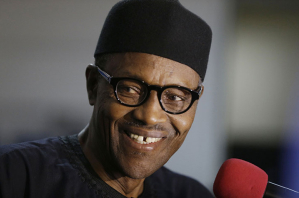
Muhammadu Buhari's was officially declared the victor of Nigeria's presidential election yesterday. Despite election observers applauding Nigeria's first peaceful democratic transition since its independence in 1960, much criticism is still to be had. Buhari, a retired general, from the northern, predominantly Muslim, Katsina province, has had a nefarious past that is certainly raising eyebrows for many human rights observers.
Participating in several military coups in 1966, and leading one in 1983, Muhammadu Buhari, is certainly far from the face of bright and democratic future to lead this oil rich African nation. When Buhari became head of state in 1983, his rule included deplorable abuses such as the imprisoning of civil servants for showing up late to work, and even going so far as to imprison and execute students for cheating on exams or for counterfeiting.
Understanding Nigeria
As is the case for many countries like Iran, Iraq, or Saudi Arabia, prosperity from vast oil reserves rarely ever translates into progress for its civil society. Nigeria has been racked with corruption for decades now, and has only had its first democratic election this year. Nigeria is also home to rough religious tension between the Christian oil rich south, and its Muslim dominated north. Nigeria is also home to Boko Haram, the Islamic terrorist group who kidnapped 276 Christian female students last year, and sold them into bondage.
So despite Buhari's human rights record, and anti-democratic past, is there any hope for Nigeria? Well according to his many supporters, the New York times, the BBC, and even Barack Obama's campaign manager, David Axelrod, Buhari has left his past of military rule and is now an affirmed democrat. Being seen as Nigeria's strong man, many of the electorate look to him as the man who can steer Nigeria out of its decades of Islamic insurgency and corruption. And, unlike his predecessor Goodluck Jonathan, Buhari, despite having ruled the country for several years, walked out of politics without an immense amount of wealth. This is something crucial in the eyes of many Nigerians, having felt disenfranchised from the enormous amount of oil wealth that has yet to trickle down into the public; this is most particularly the case the predominantly Muslim populated North, that's been home to constant upheaval and insurgency.
If Buhari's claims of change from despotic rule, to democracy, and his campaign of anti-corruption is true, then perhaps his past really can be overlooked. Nigeria has been the host of much unrest, poverty, and huge environmental catastrophes that have ruined significant amount of rural life in Nigeria. His victory can be interpreted, not as a Muslim vs Christian narrative, but rather the choice of stability over corruption and chaos. Even his number one critic, Nobel Prize winner, and poet, Wole Soyinka, has had a change of heart towards Buhari. When being interviewed by the Guardian, Soyinka, once a key Buhari criticizer who brought his human rights abuses to international attention, claimed that even he would vote for him.
If Nigerians themselves are willing to look the other way towards Buhari's questionable past, then perhaps too the international community should give him and Nigeria a fresh start and chance.







